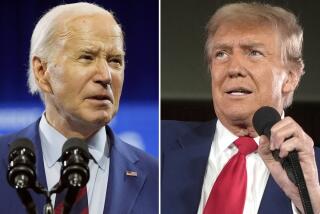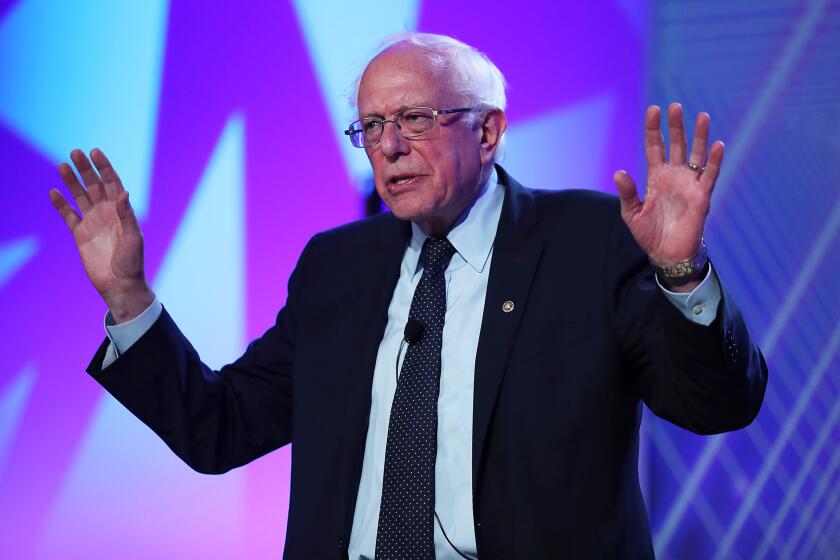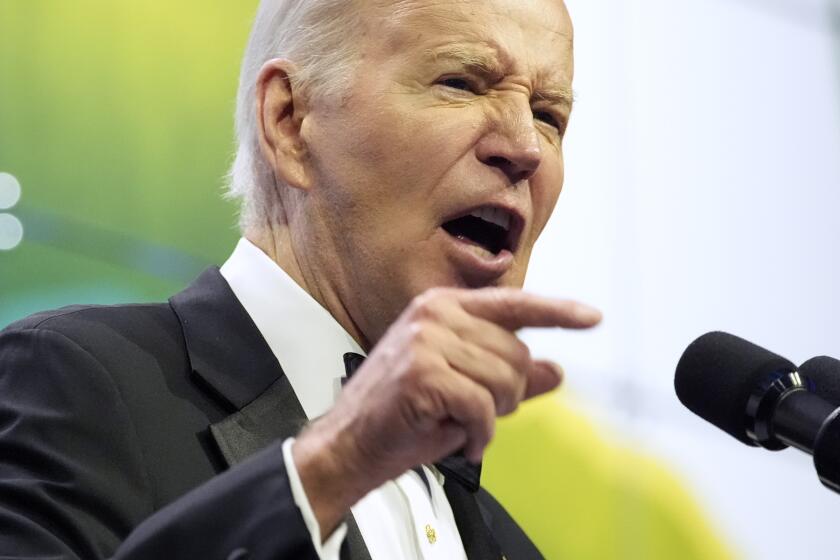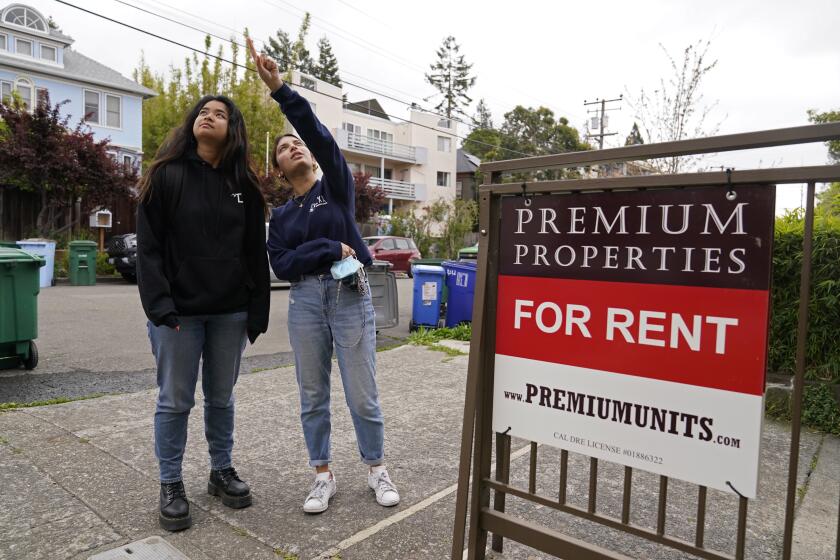Clinton Seeks Expansion of Drug Plan for Elderly
Raising the bidding in a high-stakes political battle, President Clinton on Saturday proposed a significant expansion of his plan to subsidize prescription drug coverage for the elderly.
Clinton said he would use $58 billion from the anticipated increase in the federal budget surplus to offer the drug benefit one year sooner, limit seniors’ out-of-pocket drug costs to $4,000 annually and subsidize health maintenance organizations that currently provide drug benefits under Medicare.
“Because our economy is so strong, and because we worked hard to put the Medicare trust fund back on sound footing, we have the money to do this now and do it right,” Clinton said in his weekly radio address.
Clinton announced the proposal as the House of Representatives prepared to vote this week on a competing Republican plan that would subsidize private insurance companies to offer prescription drug benefits to seniors.
In response to Clinton’s broadcast, Rep. Nancy L. Johnson (R-Conn.) touted the GOP plan as a more flexible alternative to the administration approach. “Every senior has different health needs, and that’s why they need different plans to choose from. Under the president’s approach . . . our seniors would have only one choice.”
But Clinton again denounced the GOP proposal as unworkable, a concern that even some Republicans have expressed. As a result, even though Republican leaders are eager to pass a prescription drug benefit that they can campaign on, the plan is expected to face a close vote in the GOP-controlled House this week.
The backdrop for this legislative maneuvering is a fierce political struggle for the allegiance of the elderly in this fall’s campaign. Democrats saw their support among seniors dip significantly in the 1996 presidential campaign and 1998 congressional races. They are betting heavily on their support for a prescription drug benefit to regain the lost ground. Republican strategists are eager to neutralize, or at least blur, the issue by passing their own plan.
Even before Saturday’s announcement, Clinton’s plan--variations of which have been offered by congressional Democrats--was more generous, and expensive, than the GOP proposal. But with the Office of Management and Budget shortly expected to announce that the federal budget surplus over the next decade could be as much as $1 trillion larger than the $746 billion estimated last winter, Clinton took the opportunity Saturday to sweeten the pot.
Under the initial administration proposal, all seniors would pay a $25 monthly premium for prescription drug coverage. The plan would initially cover half of the first $2,000 in drug costs for seniors, with that figure rising to $5,000 by 2006. Seniors would not be required to pay any deductible under the administration approach, which would be administered through the existing Medicare system.
Saturday’s announcement expanded the plan in three ways:
First, Clinton said he would seek to implement it in 2002, rather than 2003 as originally proposed.
Second, Clinton said he would provide federal subsidies for managed care companies that currently provide drug benefits to seniors. One senior White House aide expressed hope that those subsidies would “provide a sense of stability for managed care plans,” some of which have been abandoning Medicare on the grounds that it offers insufficient reimbursement for their costs.
Most significant, Clinton proposed adding a catastrophic benefit that would limit out-of-pocket prescription payments for seniors to $4,000 a year initially, with that figure increasing as drug costs rise in subsequent years. Clinton’s initial proposal anticipated adding a catastrophic benefit only in 2006.
With that new benefit, the government would split the cost on the first $2,000 in drug bills, the senior would then pay for the next $3,000 in costs and the government would pick up all expenses above that.
In all, Clinton said these changes would raise the cost of his proposal to $253 billion over 10 years, up from the initial estimate of $195 billion.
The competing Republican plan that the House Ways and Means Committee approved last week would cost considerably less--about $40 billion over five years and perhaps $150 billion over 10, according to some estimates.
While Clinton’s proposal would cover the entire Medicare population, participation in the GOP plan would be voluntary. Republicans say their plan reflects the reality that many Medicare recipients already receive drug coverage through private insurance.
But critics, which include some insurance industry officials, say that because the plan is voluntary the least healthy seniors with the highest drug bills would be most likely to participate; that could drive up costs and make it unfeasible for insurers to offer the coverage.
The GOP plan would impose premiums from $35 to $40 a month, require participating seniors to pay the first $250 a year in drug costs, and cover half the cost of the next $2,100 in annual expenses. It would provide complete coverage once out-of-pocket costs reached $6,000 annually, compared with the $4,000 under the plan Clinton announced.
Though critical of Clinton’s approach, Johnson held out an olive branch in her broadcast, saying: “While we have differences with the president’s plan, we are not that far apart.”
While the expected increase in the federal budget surplus projections has raised some hopes the two sides may be able to reach agreement, other signs are more ominous.
When Senate Democrats offered a prescription drug plan similar to Clinton’s on Thursday night, it was rejected on a virtually party-line vote. And the administration continues to denounce the House Republicans’ reliance on private insurance companies to deliver the benefit.
More to Read
Get the L.A. Times Politics newsletter
Deeply reported insights into legislation, politics and policy from Sacramento, Washington and beyond. In your inbox three times per week.
You may occasionally receive promotional content from the Los Angeles Times.






